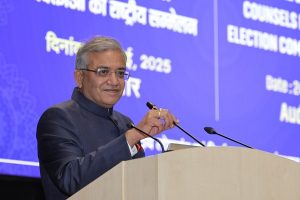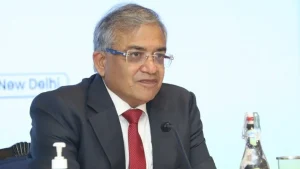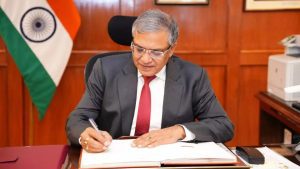Electoral Revisions Declared Lawful by CEC Gyanesh Kumar
Chief Election Commissioner (CEC) Gyanesh Kumar has made it clear that the ongoing electoral roll revisions are entirely lawful and an integral part of the democratic process. His remarks come at a time when certain groups have demanded that these revisions be postponed ahead of the upcoming polls. Kumar stressed that such demands are “unjustified” and go against the very spirit of ensuring a free and fair election.
A Routine Democratic Exercise
Speaking to the media, the CEC explained that electoral roll revisions are a routine exercise undertaken before every major election in India. The process allows for additions, deletions and corrections in the voter list, ensuring that every eligible citizen gets the opportunity to exercise their democratic right. Kumar said the Election Commission is duty-bound to maintain updated and accurate rolls, and any delay would weaken the electoral process rather than strengthen it.
Addressing Concerns Over Timing
When asked about concerns that the timing of revisions could influence the elections, Kumar dismissed these as baseless. He noted that the exercise follows a fixed calendar and is not linked to political outcomes. “The objective is simple—to make sure no eligible voter is left out. If we delay, we risk disenfranchising thousands,” he said firmly.
Ensuring Voter Confidence
The Election Commission has also undertaken several measures to increase transparency. These include online portals where citizens can check the status of their applications and lodge complaints. Kumar emphasized that voter confidence is the foundation of democracy and that trust in the system must be reinforced through constant engagement and clarity.

Opposition Demands and Pushback
Some opposition parties had earlier demanded that electoral roll revisions be postponed, citing concerns about potential manipulation or exclusion. However, Kumar reiterated that the process is monitored by independent officials and is open to scrutiny at every step. He urged political parties to encourage their supporters to verify their names in the rolls rather than spreading doubts. “Democracy functions on participation, not suspicion,” he remarked.
Citizens’ Voices and On-Ground Realities
For many first-time voters, the revision process is seen as an empowering moment. College students in several cities have shared how online access made registering as voters easier than ever before. At the same time, migrant workers in rural areas have expressed the need for more outreach so that they are not left out due to logistical challenges. Civil society groups are also stepping in, conducting awareness drives to help citizens understand deadlines and documentation requirements.
The Bigger Picture of Electoral Reforms
The CEC placed the revisions in the context of larger electoral reforms being carried out in the country. Over the years, India has steadily moved toward digitization, reducing paperwork and increasing efficiency. Biometric verification, stronger data security and cross-verification with other government databases are among the innovations being implemented to reduce errors and ensure accuracy. Kumar called these reforms a “work in progress” but reaffirmed the commission’s commitment to constant improvement.

Extra Emphasis on Accountability
In addition to defending the process, Kumar also introduced the idea of accountability for officials involved in the exercise. He said district election officers and local staff must be held to the highest standards since their work directly impacts voter trust. Training sessions, stricter audits and feedback mechanisms are being strengthened to avoid discrepancies. By doing this, the commission aims not just to update lists but to restore citizens’ full faith in the integrity of elections.
Looking Ahead to the Polls
As the nation heads closer to election season, the debate over voter rolls is likely to continue. However, the Election Commission has underlined its unwavering stand: revisions are lawful, necessary and crucial for the smooth conduct of polls. Kumar’s words highlight a fundamental truth of democracy—that fair elections begin not at the ballot box, but with accurate and inclusive voter rolls.
For millions of Indians, these revisions are not merely technical updates but a reaffirmation of their voice in shaping the future of the country.
Also read: https://channel6network.com/sonam-wangchuk/

